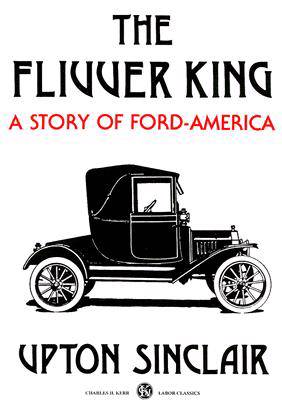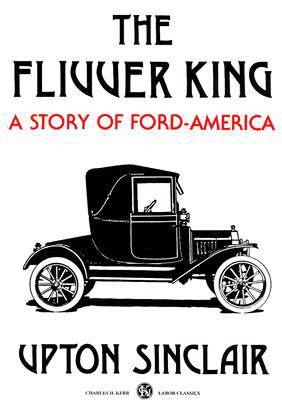
- Afhalen na 1 uur in een winkel met voorraad
- Gratis thuislevering in België vanaf € 30
- Ruim aanbod met 7 miljoen producten
- Afhalen na 1 uur in een winkel met voorraad
- Gratis thuislevering in België vanaf € 30
- Ruim aanbod met 7 miljoen producten
Zoeken
€ 23,95
+ 47 punten
Uitvoering
Omschrijving
The Flivver King stands among the finest of modern American historical novels. It is history as it ought to be written - from the bottom up and the top down, with monumental sensitivity to the compromise and conflict between the two extremes. Its two stories - those of Henry Ford and Ford-worker Abner Shutt, unfold side by side, indeed dialectically. They are, in the end, one story: the saga of class and culture in 'Ford-America'. Workers and bosses, flappers and Klansmen, war and depression, Prohibition outlaws and high-society parties, unions and anti-union gun thugs - few aspects of American life in the first four decades of the last century are missing from this small masterpiece. The Flivver King sustains the same sure grasp of working class life which characterized Sinclair's earlier classic, The Jungle, but much less sentimentally and with a steadier focus on how alienated work breeds not only degradation but also resistance and revolt. Originally written in 1937 to aid the United Automobile Workers' organizing drive, The Flivver King answers the question "Why do we need a union?" with quiet eloquence. The Charles H. Kerr Company has reissued it as a great American novel and an important historical document, because that question has never gone away and is now more vital than ever. With an introduction from Steve Meyer.
Specificaties
Betrokkenen
- Auteur(s):
- Uitgeverij:
Inhoud
- Aantal bladzijden:
- 119
- Taal:
- Engels
Eigenschappen
- Productcode (EAN):
- 9780882863573
- Verschijningsdatum:
- 1/01/1999
- Uitvoering:
- Paperback
- Formaat:
- Trade paperback (VS)
- Afmetingen:
- 150 mm x 226 mm
- Gewicht:
- 204 g

Alleen bij Standaard Boekhandel
+ 47 punten op je klantenkaart van Standaard Boekhandel
Beoordelingen
We publiceren alleen reviews die voldoen aan de voorwaarden voor reviews. Bekijk onze voorwaarden voor reviews.








